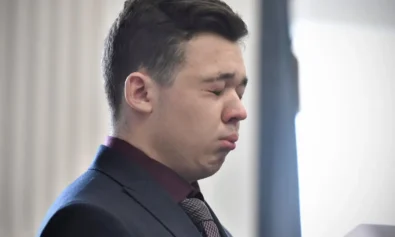A suicide bomber detonated his explosives-lined vest on the grounds of the U.S. Embassy in Ankara, Turkey, today, killing himself and a Turkish guard in what the U.S. has deemed an “act of terror.”
Two other guards were injured and a Turkish television journalist, Didem Tuncay, 38, who was going to the embassy for tea with Francis Ricciardone, the U.S. ambassador to Turkey. She was not in critical condition, a hospital spokesman told the media.
The explosion took place inside the security checkpoint, at a side entrance to the embassy that is used by staff. The guard who was killed was standing outside the checkpoint, while the two injured guards “were standing in a more protected area,” according to Turkey’s interior minister, Muammer Guler.
The embassy is heavily protected, reports The Guardian, and located near several other embassies, including those of Germany and France.
Security at American embassies overseas has become a flash point in the U.S., after the attack last fall on the U.S. diplomatic mission in Benghazi, Libya, which killed four Americans, including the ambassador, Chris Stevens. That incident led to a firestorm of criticism directed at the Obama administration, particularly during the months leading up to the November election.
The U.S. Embassy issued a statement thanking “the Turkish government, the media, and members of the public for their expressions of solidarity and outrage over the incident.”
A big question in the Libya incident was whether the Obama administration initially labeled it as an act of terror. Initial statements by Obama officials, such as U.N. Ambassador Susan Rice, seemed to blame the attack on a demonstration over an anti-Muslim movie made in America.
White House spokesman Jay Carney was quick to use the word “terror” this time.
“A suicide bombing in the perimeter of an embassy is by definition an act of terror, a terrorist attack,” he said.
He added, “We do not know at this point who is responsible or the motivations.”
But his statement was odd, considering that the Turkish authorities immediately blamed the attack on a Marxist organization. By Friday evening, Prime Minister Recep Tayyip Erdogan said the issue had “pretty much been clarified” because the bomber had been identified.
Turkish authorities used a skin mark on his head to identify him as Ecevit Sanli, a leftwing activist and member of the leftwing organization, the Revolutionary People’s Liberation Party-Front, or DHKP-C.
According to the Turkish daily Radikal, the bomber had been arrested in 1997 for an attack on a military dorm in Istanbul. He was released in 2002, following an illness sustained by a hunger strike in prison.
Ricciardone said the US and Turkey “will continue to fight terrorism together.”
“From today’s event, it is clear that we both suffer from this terrible, terrible problem of today’s world. We are determined, after events like this, even more to cooperate together until we defeat this problem together,” he said.
“All these [attacks] are against the peace and welfare of our country,” Prime Minister Erdogan said in a speech given in Istanbul. “We will stand tall; we will stand strong and overcome these [attacks]. We will never say enough, we will never say ‘this is the end,’ we will get stronger as we grow,”
But some terrorism experts expressed skepticism about the group fingered by Turkish officials as being responsible. According to The New York Times, the Revolutionary People’s Liberation Party-Front is on the State Department’s list of terrorist organizations, but up until this point, it has primarily targeted Turkish officials and generals, not the U.S. The group was blamed for the assassination of a former prime minister in 1980 and a suicide attack on a police station in Istanbul last September.
“I’m rarely stumped on these things, but I am stumped,” Bruce Hoffman, a terrorism expert at Georgetown University in Washington, told The Times. He said Islamic terrorists would seem far more likely suspects. And the speed with which the Turks claimed to have solved the case triggered more suspicions for him.
“When a terrorist crime is solved within 24 hours, it is suspicious,” he said.

